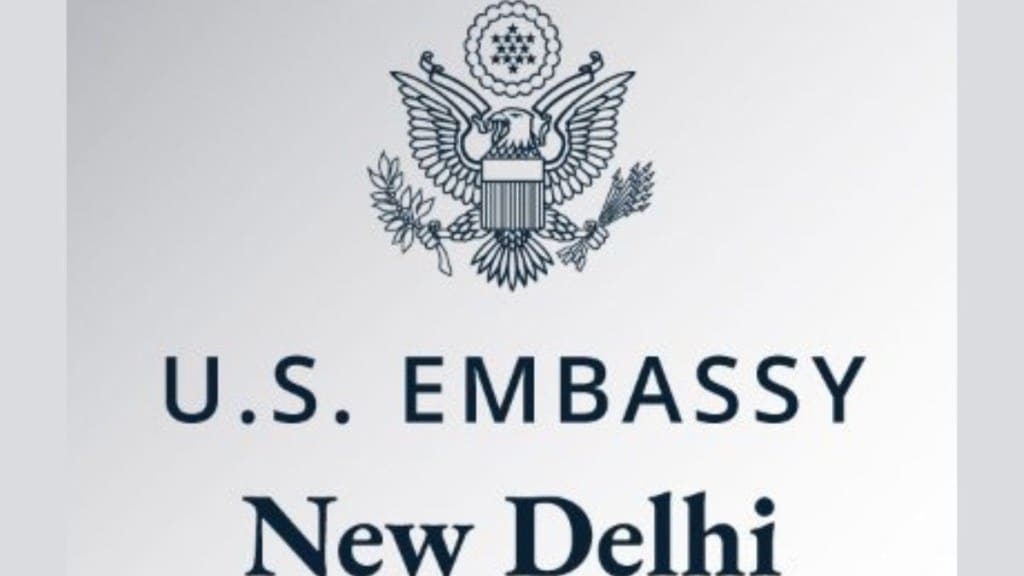The US Embassy in India issued a fresh social media disclosure announcement on Thursday morning (IST), June 26. As per the additional strict rule introduced this week, mandates visa applicants (F, M or J) to list all social media usernames or handles of every platform they have used from the last five years.
This disclosure must be made through the DS-160, i.e. the online nonimmigrant visa application form meant for temporary travel to the United States. “Consular Officers use the information entered on the DS-160 to process the visa application and, combined with a personal interview, determine an applicant’s eligibility for a nonimmigrant visa,” says the official US Travel.State.Gov website.
In an official X post, the US Embassy in India noted that visa applicants must certify that the details mentioned in their visa application are true and correct before they sign and submit it. “Omitting social media information could lead to visa denial and ineligibility for future visas,” read the tweet.
How can US visa applicants disclose their social media usernames
These additional social media identifiers on visa application forms and other available information will be used by the officials in your visa screening and vetting process. The online nonimmigration visa application (DS-160) on the US Department of State’s Consular Electronic Application Centre automatically enquires about your social media process. A drop-down menu allows you to select each social media platform you have used within the last five years.
Visa applicants are required to list all social media usernames or handles of every platform they have used from the last 5 years on the DS-160 visa application form. Applicants certify that the information in their visa application is true and correct before they sign and… pic.twitter.com/ZiSewKYNbt
— U.S. Embassy India (@USAndIndia) June 26, 2025
It will then ask about the User ID (email address, username handle, telephone number, etc) you used on that particular platform. “If you have used more than one platform or more than one username, handle or telephone number on a single platform, click the ‘add Another’ button to list each one separately,” detailed a screenshot of the DS-160 form.
US visa screening and vetting process: Notice
In a press release dated June 18, 2025, the US Department of State highlighted the “Announcement of Expanded Screening and Vetting for Visa Applicants.” Therein, the authorities once again reiterated what US State Secretary Marco Rubio has often foregrounded: “A US Visa is a privilege, not a right.”
Officials further noted, “Under new guidance, we will conduct a comprehensive and thorough vetting, including online presence, of all student and exchange visitor applicants in the F, M, and J nonimmigrant classifications.” And so, this entails that all applicants for F, M and J nonimmigrant visas adjust the privacy settings on all of their social media profiles to “public.”
“The United States must be vigilant during the visa issuance process to ensure that those applying for admission into the United States do not intend to harm Americans and our national interests, and that all applicants credibly establish their eligibility for the visa sought, including that they intend to engage in activities consistent with the terms for their admission,” the message concluded.
U.S. visa screening does NOT stop after a visa is issued. We continuously check visa holders to ensure they follow all U.S. laws and immigration rules — and we will revoke their visas and deport them if they don't. pic.twitter.com/og15SW5MhV
— State_SCA (@State_SCA) June 25, 2025
Additionally, the State Department did not forget to remind applicants that US visa screening does not end after a visa is issued. Issuing a grave warning, authorities said, “We continuously check visa holders to ensure they follow all US laws and immigration rules — and we will revoke their visas and deport them if they don’t.”
Such words of caution signalling detention, deportation and permanent consequences for future visa eligibility are often reiterated by US embassies across the globe and the American Department of State, especially considering the seemingly never-ending immigration crackdown under the Donald Trump administration.
Effective immediately, all individuals applying for an F, M, or J nonimmigrant visa are requested to adjust the privacy settings on all of their social media accounts to public to facilitate vetting necessary to establish their identity and admissibility to the United States… pic.twitter.com/xotcfc3Qdo
— U.S. Embassy India (@USAndIndia) June 23, 2025

